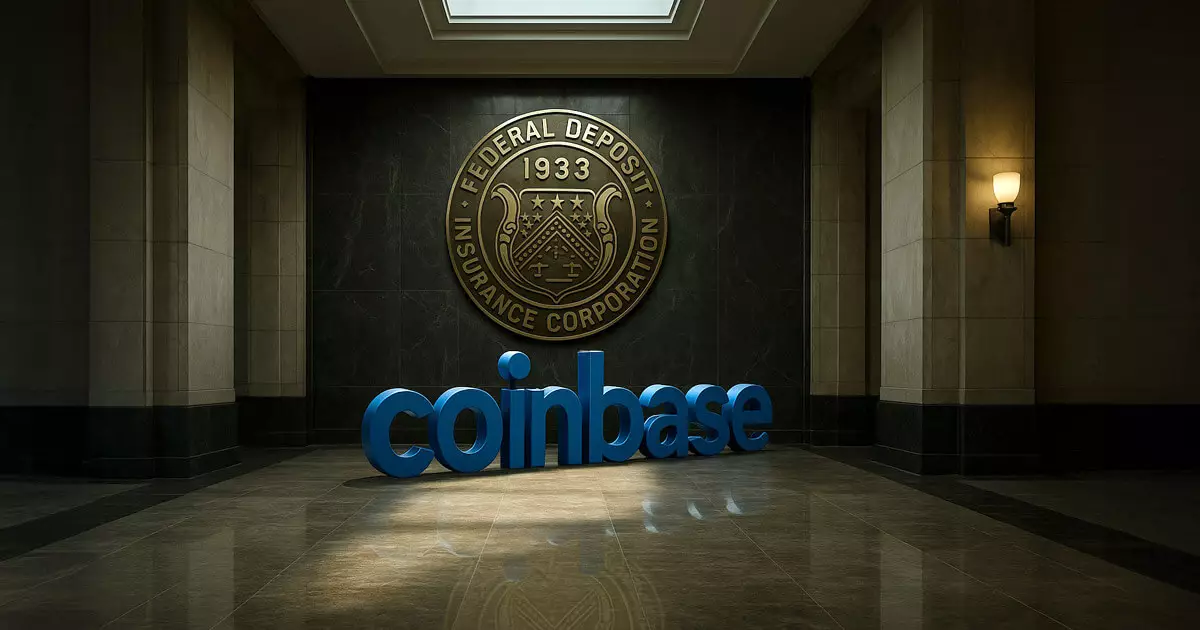In a contentious showdown that highlights the strained relationship between cryptocurrency firms and regulatory bodies, Coinbase has boldly challenged the Federal Deposit Insurance Corporation (FDIC) over its attempts to delay vital disclosures regarding the debanking of digital asset companies. This confrontation is not merely about timelines; it represents a critical juncture in the ongoing struggle for transparency and fairness in financial regulation. Coinbase’s Chief Legal Officer, Paul Grewal, aptly described the FDIC’s request for a 16-day extension as “absurd,” directly criticizing the agency’s tendency to obfuscate its decision-making process. When an entity employs 13 pages to justify a mere request for more time to determine if they need additional time, the absurdity of the situation cannot be understated.
Questionable Motivations Behind Delayed Decisions
The core of the matter lies in Coinbase’s allegations that the FDIC’s redacted documents offer little to no real insight. It raises the question: what is the FDIC trying to hide? An agency that is mandated to ensure financial stability should be held accountable to the same transparency it expects from the industry it regulates. Coinbase’s argument posits that the FDIC is deliberately stalling in order to sidestep its legal responsibilities under the Freedom of Information Act (FOIA). Such stalling tactics undermine trust in public institutions at a time when clarity is paramount for both the cryptocurrency market and investors who depend on it.
Interestingly, some critics argue that this entire debacle speaks volumes about the government’s approach to cryptocurrency—a landscape rife with misunderstanding and skepticism. The FDIC’s apparent pressure on financial entities to sever ties with digital asset firms is not just an internal regulatory issue; it symbolizes a broader reluctance to fully grasp and embrace financial innovation. As Coinbase navigates this turbulent terrain, its push for more granular information shines a spotlight on the need for regulatory frameworks that align with the realities of modern finance.
Going Beyond the Surface
The pertinent revelations unearthed so far merely scratch the surface of a much more complex issue. Earlier disclosures have shown that the FDIC not only instructed banks to pause services to crypto businesses but also cautioned them about reputational risks—a maneuver that borders on protectionism. Such pressures create an uneven playing field, effectively stifling innovation in the burgeoning crypto sector. Coinbase argues that to truly understand the extent of regulatory overreach, more transparency must be pushed forth. After all, if regulatory authorities are operating behind a veil of secrecy, how can the crypto industry know how to adapt and evolve?
This legal tug-of-war is emblematic of the larger ideological battle currently playing out between traditional finance and the revolutionary nature of cryptocurrency. As banks do the government’s bidding under fear of regulatory reprisal, it becomes increasingly clear that a reevaluation of the current regulatory framework is long overdue. The future of digital finance should not hang in the balance of stifling government bureaucracy, but instead should flourish under an environment that encourages open conversation and ethical competition.
In an age where every technological advancement faces scrutiny, perhaps it is time for our regulatory agencies to step out of the shadows and into the light, reaffirming their commitment to not just protect but also promote innovation that aligns with the modern financial landscape.

